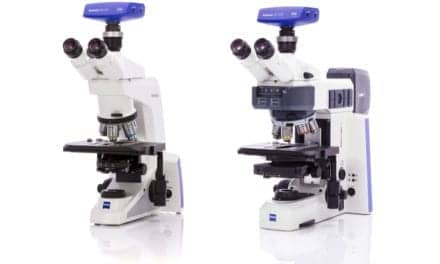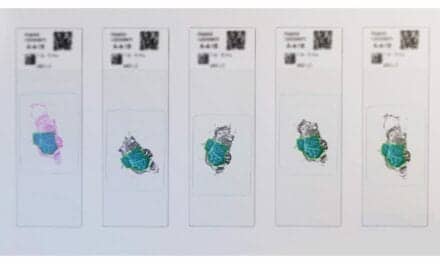This is a companion article to the feature, Pathology Goes Digital.
Laboratories in Europe, Asia, and the United States have demonstrated success in developing a business case to support their organizations’ investments in digital pathology tools for diagnostic use. Last year, for example, the Laboratory for Pathology East Netherlands Foundation (LabPON) replaced its microscopes with the IntelliSite pathology solution by Philips Digital Pathology Solutions, Best, the Netherlands, becoming the first laboratory in the world to transition to 100% digital diagnosis for all clinical histology cases.
As the largest pathology laboratory in the Netherlands, LabPON is consulted on more than 54,000 histology cases each year, which translates to more than 300,000 slides of human tissue. According to Alexi Baidoshvili, MD, a pathologist with LabPON, digitizing images with the IntelliSite system has eased collaboration across sites and reduced costs. “Transitioning our entire workflow to digital processes demonstrates our commitment to ensuring our patients and clinical colleagues receive the fastest, most-effective, and best-informed diagnoses possible,” he adds.
Other recent examples include Philips’ collaboration with the Mount Sinai Health System, New York, to advance clinical research in computational pathology utilizing its IntelliSite digital pathology solution. The joint development, announced in early 2015, seeks to build a state-of-the art digital image repository of patient tissue samples, pathology reports, patient histories, treatment data, and outcomes with innovative data analytics, in order to pursue the discovery of new tissue-based tests and unlock new insights from these ‘connected’ data.
Additionally, last year Singapore General Hospital—the flagship hospital of the nation’s public healthcare system—implemented the world’s largest digital pathology installation in its diagnostic laboratory. The lab’s installation is intended to avoid the challenges of storing glass tissue slides—such as loss, breakage, sample degradation, and manual archiving errors—and reduce the physical space required to manage the lab’s records. The laboratory’s installation will leverage more than 1.6 petabytes of disk storage and 1.6 petabytes of tape archiving to establish a digital archive of pathology cases.
In July, Philips launched a long-term strategic partnership with the Andalusian Health Service, Spain, including an 8-year managed equipment services agreement that is expected to make the newly built clinical hospital at the Granada Health Science Technological Park the region’s most technologically advanced health center serving patients. Under the terms of the agreement, Philips will provide the hospital with a technology management model to meet current and future healthcare needs, while also taking responsibility for maintaining, upgrading, and renewing the hospital’s equipment and systems. A centerpiece of the new facility is Spain’s first fully digital pathology laboratory, equipped with Philips’ advanced digital pathology solutions, including a state-of-the-art digital pathology image management system and innovative data analytics. Patients and care providers will also enjoy the benefits of advanced clinical information and patient monitoring systems. At the same time the hospital staff will have access to integrated connected-care solutions that improve workflows and optimize utilization of the hospital’s resources.
Globally, Philips has been involved in implementing more than 40 such long-term, strategic partnerships. In Spain, the company has similar partnerships with the Santa Creu I Sant Pau Hospital and the University and Polytechnic Hospital La Fe, Valencia. Other recent examples include collaborations with the Heart Hospital Tampare, Finland, and Karolinska Hospital, Sweden.
In the United States, digital pathology systems are available under research use only labeling, and are not for diagnostic use. For the last several years, several industry stakeholders, including Philips, have been working with FDA and the regulatory taskforce of the Digital Pathology Association to bring digital pathology technologies for surgical pathology to US clinicians, which is a very positive sign for the community.







Informative Blog! Thanks for sharing this.